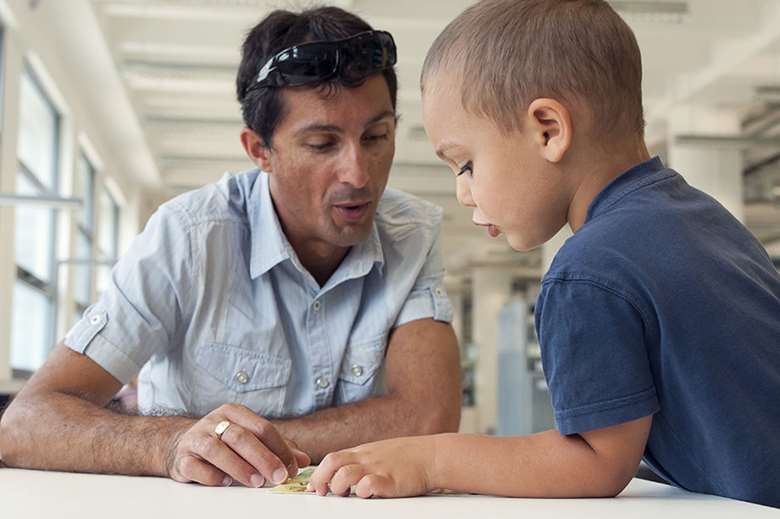Baseline providers give views on form of new assessment
Monday, October 2, 2017
The Government’s decision to bring back a baseline assessment in Reception, just two years after it was forced to scrap the previous attempt, is a controversial one (see Analysis, page 14).

However, in its response to the consultation on primary assessment, the Department for Education says it found support for the principle of a new assessment in Reception and intends to develop a new baseline as a statutory assessment, and to test and evaluate it ready for autumn 2020.
In autumn 2015, three providers piloted the previous baseline, and although it was not mandatory, just 2,000 of England’s 17,000 primary schools chose not to use it. However, the Government axed it after data between the three assessments was found not to be comparable. Hence the decision this time to use just one commercial supplier.
The DfE says, ‘The content, format and uses of the assessment are critical to get right in order to ensure the success of the new assessment and progress measures. The Standards and Testing Agency will shortly start the process of engaging a commercial partner to work with them to design and deliver the assessment.’
But what can we expect the new baseline to look like? The DfE says it intends ‘the pupil’s regular teacher or teaching assistant’ to carry out the assessment and that it ‘should not feel like a test’ or be any different from the existing on-entry assessments that schools already use. Teachers or teaching assistants will ‘mediate the assessment’. It adds, ‘We do not intend this to be an observational assessment, which is carried out over time, like the EYFSP.’
Jan Dubiel, national director of Early Excellence, which devised EExBA, the baseline that was used by more than 14,000 schools in the previous pilot, told Nursery World he was concerned the new assessment will not be based on observation, and will be ‘a right or wrong answer scenario. They haven’t said it’s a test but have said it’s not an observational assessment, which probably means it will be tablet-based.’
He added, ‘You can’t have a tablet test for executive function and self-regulation. It will distract Reception teachers from settling children in and getting to know them.’
Testing very young children is ‘an inaccurate way of gathering data’ and ‘unhelpful and unreliable’, he said. ‘It will be of no use, but also more importantly won’t provide accurate predictive data. Is it useful? Is it accurate? What they describe is neither of those things. There are huge amounts of evidence that young children do not perform in tests or demonstrate what they know.’
He predicted that ‘a very narrow test will be strongly resisted. Testing is a bad idea [and it will lead to] narrowing the curriculum. There is a way of doing this – EExBA.’ He added that 80 per cent of primary schools had used EExBA, and there was ‘clear support in the community’ for it.
PRAISE AND CAUTION
Dr Robert Coe, professor of education and director of the Centre for Evaluation and Monitoring (CEM) at Durham University, which developed the Base assessment used in the pilot, acknowledged that opinion is polarised, but said, ‘The idea [is] that observation is good, testing is bad. [But] testing is observing what children do; an adult still has to watch what a child does. If you wait for behaviour to be exhibited spontaneously, you miss a lot that a child can do. If you want to know what’s going on in a child’s head, you have to ask them questions. Children are used to being asked questions and it doesn’t have to be stressful.
‘I think the value is in the information the teacher gets. It’s not just you’re at this point or that point. The hope is that it would still have diagnostic information for teachers, confirming what you’re already seeing and telling you something new that you wouldn’t have seen – and that’s why it’s valuable.’
Around 1,000 schools are continuing to use Base, he said, even though Government funding has now ended. ‘Schools wouldn’t be doing it if they thought it was a traumatic experience.’
Maddie Wheeler, director of the National Foundation for Educational Research – the other provider from the previous pilot – said the characteristics of the assessments would be critical.
‘They must be reliable, valid and manageable assessments designed specifically for the purpose for which they are going to be used. It is good to see, therefore, that any assessment should be teacher-mediated and not purely observational.
‘Remember we are talking about assessing children and not “testing” them. Standardising the tasks and administration instructions does not mean assessments are automated or sterile. Most young children in Reception experience a very common type of one-to-one assessment – that of a familiar adult listening to them read – and enjoy the experience.
‘In a child’s eyes, a one-to-one baseline assessment may appear no stranger than several other activities they are asked to do in school that they have never done before.
‘Until the details of the DfE’s requirements are known, we cannot say whether NFER will be bidding for any contract.’




